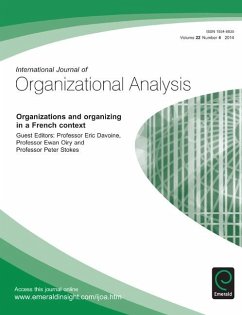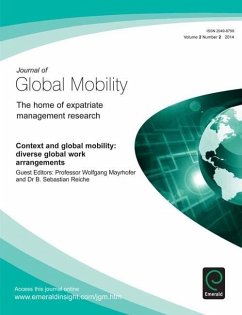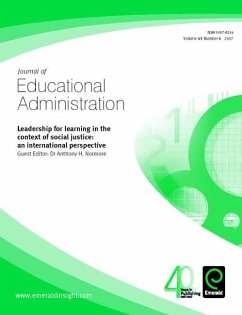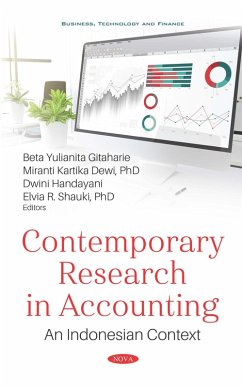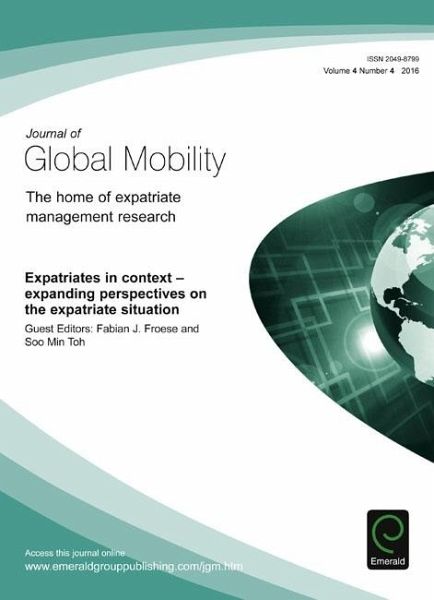
Expatriates in context (eBook, PDF)

PAYBACK Punkte
53 °P sammeln!
Expatriate management research has played an important role in international business and international human resource management research during the last few decades. This is not surprising given the key role expatriates often play in foreign subsidiaries, their high cost, and the challenges they may face in foreign cultures. However, since the early research on expatriate success, the definition of an expatriate and what it means to be successful have expanded. While prior research has greatly increased our understanding of the determinants of expatriate success, the literature is criticized...
Expatriate management research has played an important role in international business and international human resource management research during the last few decades. This is not surprising given the key role expatriates often play in foreign subsidiaries, their high cost, and the challenges they may face in foreign cultures. However, since the early research on expatriate success, the definition of an expatriate and what it means to be successful have expanded. While prior research has greatly increased our understanding of the determinants of expatriate success, the literature is criticized for being largely expatriate-centric, particularly focused on corporate expatriates, and with a somewhat singular focus on increasing expatriate cross-cultural adjustment. This is problematic because the background, motivation, and experiences of the different types of expatriates, e.g. corporate versus self-initiated expatriates, may vary substantially. Accordingly, organizations need to concern themselves beyond simply the adjustment of their expatriates, and look at whether the objectives of expatriation have been met - both long and short term, and the impact it has had, and may continue to have, on multiple stakeholders. With this comes a greater imperative to broaden our research perspectives. These perspectives should account for a greater range of expatriate types and the increasing presence of women expatriates and expatriates from emerging economies. When defining expatriate success, our perspectives should also involve a longer time frame (including repatriation, career outcomes, and sustainability), and a wider range of stakeholders directly or indirectly implicated by the expatriation process. Cross-cultural contact impacts and requires adaptation of all parties involved - not simply the expatriate. A multiple stakeholder perspective is also crucial for developing sustainable expatriation management practices. We should also be interested in processes - asking what roles various stakeholders play in the expatriation process, and what effect expatriation may have on these stakeholders. We suggest that stakeholders could include, but are not limited to: the multinational headquarters and its subsidiaries, host country nationals (HCNs) within and outside of the workplace, other expatriates in the host unit or in other subsidiaries, spouse/partner, family members, and host communities and nations.
Dieser Download kann aus rechtlichen Gründen nur mit Rechnungsadresse in A, B, BG, CY, CZ, D, DK, EW, E, FIN, F, GR, HR, H, IRL, I, LT, L, LR, M, NL, PL, P, R, S, SLO, SK ausgeliefert werden.




